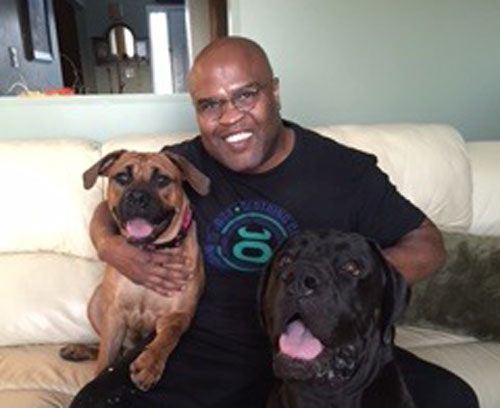Protect Your Brain
“Dr. Denise, you need to see the movie, Concussion, with Will Smith. It depicts exactly what I have experienced living with depression and dementia, ” encouraged Gary Goodridge, legendary MMA UFC and Pride fighter. That is exactly what I did before interviewing him this week. I didn’t stop there. I read his book “Gatekeeper: The Fighting Life of Gary ‘Big Daddy” Goodridge”, researched the NFL’s as well as the MMA’s policies on dealing with head injury, and read countless articles on CTE (Chronic Traumatic Encephelopathy). In 2012 Gary was diagnosed with early onset dementia and depression and his doctors said that he was exhibiting symptoms similar to other professional athletes that on autopsy were diagnosed with CTE.
What is CTE? Dr. Bennet Omalu and colleagues in the Department of Pathology at University of Pittsburgh together published in the journal Neurosurgery in 2005 an article called, “Chronic Traumatic Encephalopathy in a National Football League Player.” Dr. Omalu’s autopsy of former Pittsburgh Steelers Mike Webster in 2002 revealed large accumulations of tau protein in Webster’s brain, affecting mood, emotions, and executive functions similar to the way clumps of beta-amyloid protein contributes to Alzheimer’s.
According to the Brain Injury Research Institute founded by Dr. Julian E. Bailes, M.D.,Dr. Bennet Omalu M.D. and Robert P. Fitzsimmons in 2002 ( protectthebrain.org ):
“Since the 1920’s the term dementia pugilistica or “punch-drunk“ syndrome has been known as it has occurred in boxers. Dementia pugilistica is actually a variant of chronic traumatic encephalopathy (CTE), which is itself a serious type of brain damage resulting from repeated concussions and is found in many professional athletes and military personnel who have been subjected to multiple impacts to the head.
Severe concussions and mild traumatic brain injury are both capable of causing CTE, and the likelihood of developing this condition is increased with the number of impacts.”
“Big Daddy”, Gary Goodridge has a true samurai spirit both in and outside of the ring. He reports his medication is helping with aggression and depression. He has been given cognitive strategies to help him keep sharp with his recent cognitive decline: keeping a day planner to help with short-term memory and maintaining structure to his day. Walking his dogs, and spending time with his daughters and family give him the most joy. “The gym really helps me~my own workouts as well as teaching children keeps me inspired.” He spoke about this on the interview. He also spoke about the need for rest in between fights and other tips he thinks could have helped him to minimize repeated head trauma. “I would have had second thoughts about fighting if I knew then what I would be experiencing now,” he mentioned during another discussion. He and I spoke about his desire to provide for his family as well as his natural ability as a fighter keeping him engaged in the sport. Gary’s love of his daughters and his desire to be a role model and advocate for mental health awareness is giving him the hope and inspiration to fight on while living with depression and dementia.
In Discover’s July/August 2016 article by Jeff Wheelwright, “Ahead of the Hit,” it was pointed out that the science is still gray on CTE and predicting the effects of impacts. Dr. Ann McKee and her group at Boston University continue to define and help with the consensus of the definition of the neurodegenerative disorder CTE.
In my professional opinion as a Mother and as a Doctor my consensus opinion is “Protect your brain and your child’s brain.” That is it. It is common sense.
- Avoid or minimize head trauma.
- Avoid or minimize substance use.
- Seek out treatment for mental health and focus on lifestyle habits that promote well-being.
- If you or your child play a contact sport and are having any changes in behavior or changes in cognition contact your physician at early onset to prevent any long-term neurodegenerative consequences.
Routine physicals are mandatory for optimal health.
Our children need us to be advocates for their health and well being. If we can encourage participation in sports and extracurricular activities that minimize head trauma and concussions we are doing our job to protect our children.
Thank you, Gary Goodridge for sharing your story, you have taught me a lot and have inspired me in many ways.
Dr. Denise



